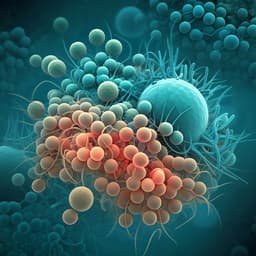
Veterinary Science
Feed additives for the control of post-weaning *Streptococcus suis* disease and the effect on the faecal and nasal microbiota
F. Correa-fiz, C. Neila-ibáñez, et al.
Discover how innovative feed additives can effectively replace antibiotics in managing post-weaning *Streptococcus suis* disease in swine. This exciting research by Florencia Correa-Fiz, Carlos Neila-Ibáñez, Sergio López-Soria, Sebastian Napp, Blanca Martinez, Laia Sobrevia, Simon Tibble, Virginia Aragon, and Lourdes Migura-Garcia reveals promising alternatives that enhance microbiota diversity while reducing antibiotic dependency.
Related Publications
Explore these studies to deepen your understanding of the subject.







